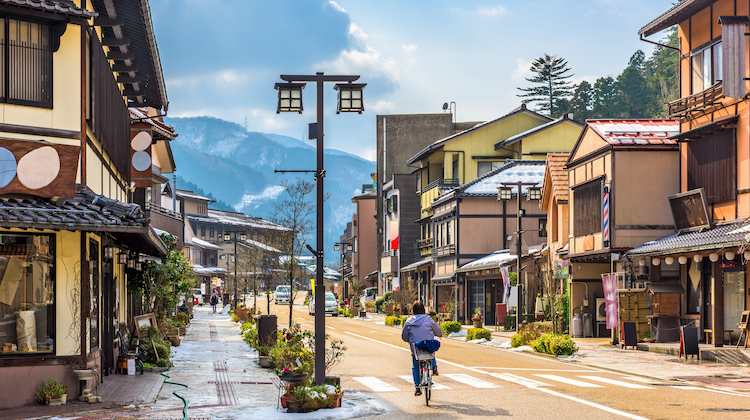Birthdays in Japan
Celebration of one's birthday is still a relatively new concept in Japan. In fact, birthdays were not celebrated until after the second world war. People used to celebrate everyone’s birthdays on New Year’s day as it was the beginning of another year for everyone. After Japan opened up to Western cultures in the 1950s, different Western holidays and customs started to come into Japan such as Christmas, Halloween, and of course, birthday celebrations. Therefore, so-called ‘Japanese’ birthdays are celebrated very much in the Western style with family and friends, presents, cakes and even the song (yes, that very ‘happy birthday to you-’ song that we all know, is sung in Japan)!
How do the Japanese celebrate their birthdays?
Celebrating one’s birthday with a party and friends is considered to be a children’s thing in general in Japan. Young people might enjoy a day out or a small get-together with their partners or friends, but will relatively be a low-key event. It is very rare for a Japanese adult to hold any formal birthday celebration. I live in England and really like the English workplace tradition of bringing cakes and snacks to work on one’s birthday. It is your birthday, so you give, invite others and celebrate together. I like how it is open, casual, and inclusive. In Japan, people who have a close and friendly relationship with their co-workers might go for a birthday meal or drink with them after work, but 90% of the time the birthday person will not be allowed to pay, everyone chips in to cover the cost.
Giving gifts
Ordinarily, birthday gifts are for children and just between couples, close friends or families. Unless it is a person you know very well, you do not have to, and/or shouldn’t give anything too glamorous. In Japan, there is a culture of ‘O-ka-e-shi’ (お返し) return gift, to show your gratitude for receiving a gift and the Japanese tend to feel bad when they receive an unexpectedly extravagant gift. If unsure, give something small and casual like a box of chocolate or flowers. Or, write a birthday card in Japanese: お誕生日おめでとうございます ‘O-tanjobi omedeto gozaimasu (happy birthday)’. I’m sure your effort will be deeply appreciated!
How do you say ‘Happy Birthday’ in Japanese?
- ハッピーバースデー ‘Happi- ba-sude-’ (very casual)
- お誕生日おめでとう ‘O-tanjobi omedeto (casual)
- お誕生日おめでとうございます ‘O-tanjobi omedeto gozaimasu (polite)
Coming of age ceremony
The second Monday of January is 成人の日 ‘Se-jin no hi’, a national holiday that celebrates all those who turned 20 years old between April 2nd of the previous year and April 1st of the current year. 20 is the official age of the adults in Japan and all 20 years old that are registered will be invited to a ceremony that takes place in a city hall. The ceremony often involves speeches about what it means to become an adult, small gifts, and some food. Young people wear traditional clothes on Se-jin no hi. Many women wear colorful kimonos and get their hair and make-up done beautifully. On this day, you will see so many groups of young people dressed up in traditional kimono and walking towards the ceremony (or going for an after-party!) and the whole town will be filled with a vibrant and positive mood.
Milestone birthdays
Many people lead long lives in Japan and the country has one of the highest life expectancies in the world. The Japanese celebrate ‘Choju no iwai doshi’ 長寿の祝い歳 which means longevity celebration ages and has many such celebrations starting from the 60th birthday. Here are some examples:
- 60th birthday ‘Kanreki’ 還暦 - Kanreki celebrates the start of a new 60 years cycle. It signifies rebirth and the symbolic color is red. Red in Japanese is ‘aka’ which is the first letter of the word ‘aka-chan (baby)’. On the Kanreki birthday, people wear red clothes and families sometimes gift things in red colors.
- 70th birthday ‘Koki’ 古希
- 77th birthday ‘Kiju’ 喜寿
- 80th birthday ‘Sanjyu’ 傘寿
- 88th birthday ‘Beijyu’ 米寿 - This is a fun one. If you take apart the letter 米 (which means ‘rice’)you will find the word ‘eighty-eight’ which is 八十八. Did you find them?
… and the list goes on until the 120th birthday!
Conclusion
The Japanese in this modern age are flexible and open to new and foreign cultural concepts. At the same time, many traditional rituals such as Se-jin no hi and milestone birthday celebrations still firmly exist. It shows how being part of a close-knit community and respect for society, harmony and togetherness are important in Japanese culture.
The only thing left to do is to import the culture of ‘bringing cakes to work on one’s birthday’ from England just to complete that sense of community.
Why not?







